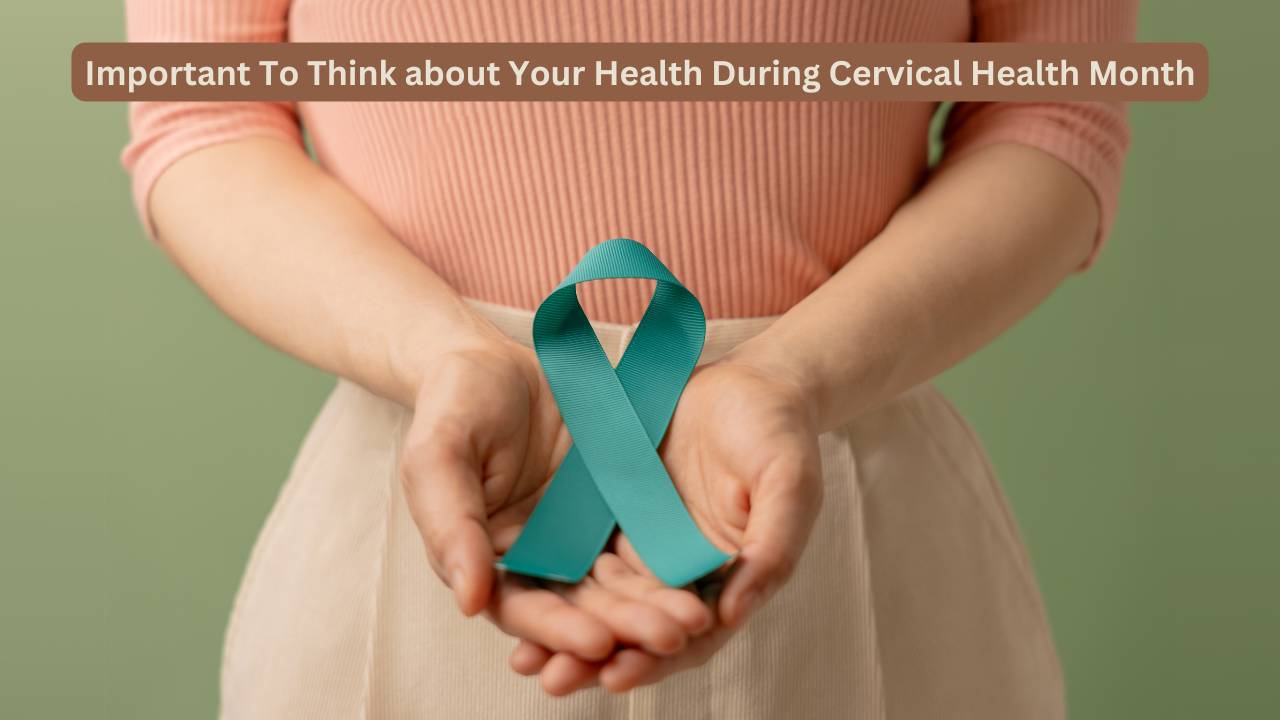Important To Think about Your Health During Cervical Health Month

January is Cervical Health Awareness Month, a time to encourage women to take proactive steps toward maintaining their health and well-being. Cervical cancer, a condition that was once a leading cause of cancer deaths for women in the United States, can now be effectively prevented and treated when caught early. This month serves as a reminder to prioritize regular screenings, vaccinations, and education about cervical health, particularly for women of all ages.
Understanding Cervical Cancer
Cervical cancer develops in the cells of the cervix—the lower part of the uterus that connects to the vagina. Most cervical cancers are caused by the human papillomavirus (HPV), a common virus transmitted through sexual contact. HPV is so prevalent that nearly all sexually active people will contract it at some point in their lives, but in most cases, the body's immune system clears the virus before it causes any harm.
However, when the virus persists, it can lead to abnormal cell changes in the cervix, which, if left untreated, can develop into cervical cancer over time. The good news is that cervical cancer is preventable through vaccination and routine screening tests like the Pap smear and HPV test.
Key Prevention Strategies for Women
-
Get Regular Screenings
The Pap smear (or Pap test) is a simple and effective procedure that detects abnormal cells in the cervix before they become cancerous. Women between the ages of 21 and 65 should have regular Pap smears as their healthcare providers recommend, typically every three to five years, depending on age and health history. The HPV test may also be used to screen for the virus that can lead to cervical cancer.
Routine screenings are critical because cervical cancer often shows no symptoms in its early stages. Early detection through these screenings can save lives by identifying and treating abnormal cells before they develop into cancer.
-
Get the HPV Vaccine
The HPV vaccine is a powerful tool in preventing cervical cancer. It protects against the types of HPV that most commonly cause cervical cancer. The Centers for Disease Control and Prevention (CDC) recommends that boys and girls receive the vaccine between the ages of 11 and 12, but women up to age 26 (and, in some cases, up to age 45) can still benefit from vaccination. Talk to your healthcare provider to see if the HPV vaccine suits you.
-
Practice Safe Sex
Since HPV is transmitted through sexual contact, practicing safe sex can reduce your risk of contracting the virus. This includes using condoms and limiting the number of sexual partners, both of which can help protect against HPV and other sexually transmitted infections (STIs).
-
Quit Smoking
Smoking has been linked to an increased risk of cervical cancer because it weakens the immune system's ability to fight off HPV infections. Quitting smoking is not only important for your overall health but also reduces your risk of developing cervical cancer.
The Importance of Self-Care and Faith
Christian women are called to care for our bodies as temples of the Holy Spirit, as stated in 1 Corinthians 6:19-20 (KJV): "What? know ye not that your body is the temple of the Holy Ghost which is in you, which ye have of God, and ye are not your own? For ye are bought with a price: therefore glorify God in your body, and in your spirit, which is God's."
Caring for our physical and reproductive health is part of honoring God with the bodies He has given us. By getting regular screenings, practicing healthy habits, and educating ourselves about cervical health, we protect ourselves and empower other women in our lives to do the same.
Action Steps for 2024
As the new year begins, let Cervical Health Awareness Month remind us to prioritize our health and well-being. Schedule a Pap smear if you are due for one, talk to your doctor about the HPV vaccine, and take proactive steps to maintain a healthy lifestyle. Encourage the women in your life—friends, sisters, daughters, and mothers—to do the same.
Taking these small but significant actions can protect you from cervical cancer and help you live a healthy, abundant life in 2024 and beyond.
Your health is a precious gift—take steps to protect it today!
Stay connected with news and updates!
Join our mailing list. You can download a free gift and receive the latest news and updates from our team.
Don't worry, your information will not be shared.



